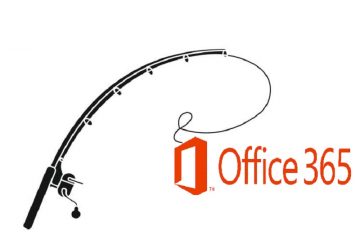Cyberstalking Is a Growing Issue, but There Are Steps You Can Take to Protect Yourself

Cyberstalking is a serious crime that is punishable by law, but sometimes, proving that someone is stalking can be very difficult. In fact, some victims might not even realize that someone is stalking them for a long time. In some cases, “professional” cybercriminals are the stalkers. For example, a more prominent online figure could have a complete stranger trying to learn their pet’s name, the street they grew up on, or the year they graduated from school just to guess secret answers and brute-force passwords to hijack accounts and gain unauthorized access to private information using data that is made public online. Of course, most people relate cyberstalking to those closer around them.
The Digital stalking: A guide to technology risks for victims report published in 2012 included the statistics shared by the UK Home Office. According to these statistics, in 2012, 39% of stalkers were current or ex-partners, 36% were friends and colleagues, 33% were complete strangers, and 4% were family members. Of course, the data is not recent, but it reveals that a good portion of stalkers are complete strangers. That being said, the majority of stalkers are those closest to us. According to the Cyberbullying Research Center in the US, around 7% of Americans become victims of cyberstalking throughout their lives, and women between ages 18-24 are the most likely victims. Harvard University researchers have also found that 1 in 12 women and 1 in 45 men in the US are stalked at some time in their lives.
The numbers are shocking indeed. It is important to dive deep into the problem to understand the psychology behind cyberstalking, but we will leave that up to experts. Our expertise is in cybersecurity, and if you continue reading, we are sure that you will learn how to enhance your virtual security and, hopefully, guard yourself against cyberstalking.
Table of Contents
View account activity
Some victims of cyberstalking realize that someone is spying on them only when they discover strange activity on their online accounts. For example, if you have discovered that emails or messages on social media you have not read been opened, there is a good chance that someone already has access to your account and is spying on you silently. Cyberstalking victims might also discover that someone blocked, unfollowed, or “unfriended” people on their behalf. It is important not to ignore such things or to write them off as bugs or random incidents unrelated to illegal activity. It is important to stay vigilant about virtual security, and if something is out of the ordinary, action must be taken immediately.
Change passwords, PINs, codes, and secret answers
If you know for a fact that someone has breached your virtual security, you must change login credentials immediately. In most cases, that is the quickest way to get rid of cyberstalkers. Unfortunately, in many cases, your virtual security is as strong as the passwords that you use. If someone is trying to spy on you and access your accounts, they are likely to try to guess passwords. If you use simple, weak combinations, hijacking your accounts is not difficult. Aim for unique, complex, and impossible-to-guess passwords. If you think that it is enough to create one difficult password to protect all accounts, think again. Sharing passwords is a big no-no as well. Here’s an example. Let’s say you share a Netflix password with your husband/wife or best friend. Let’s say you sever ties with the said husband/wife or friend. Let’s say they decide to spy on you, steal your identity, or use personal information/photos/videos against you. If all they have is a Netflix password, they cannot do much damage. However, if the same password can be used to access your email account and then all connected social networking accounts via it, you are in trouble.
Every. Single. Password you set up has to be unique and complex, and if you have no time or super-memory to create and memorize such passwords, we recommend utilizing a trusted password manager tool. If you use such a tool, the only thing you will need to guard is the master password. Once the tool is installed, it will be easy to update all weak and breached passwords too. But that is not all that you have to do. If you have set up secret answers to help you access accounts in case you forget a password, you need to review them. That is especially important if you suspect that someone close to you is stalking you because they might know your secret answers. Another thing to think about is two-factor authentication. This feature can help you enhance your virtual security, but not if the stalker can access your email or your phone to obtain the verification code sent to you.
Scan your devices for spyware
If you have discovered that your virtual security has been breached by a cyberstalker, you need to change passwords immediately. But what if that does not work? What if the stalker regains access to your accounts even after you set the most complicated password known to man? In such a case, you should not blame your password manager or yourself. Most likely, spyware exists on your mobile device or computer. There are tons of free or cheap keylogging programs/apps online, and your cyberstalker could invest in one to obtain passwords, capture screenshots, hijack your web camera, track your geolocation (on mobile devices), etc. Unfortunately, such tools are often undetectable by the installed security tools because during installation the user is asked to change security settings. Of course, to install spyware and jeopardize your virtual security, one has to gain access to your device, which means that this cyberstalking technique is most likely to be used by parents, crazy roommates, or jealous lovers.
Unfortunately, spyware might continue running on your computer or mobile device even after the stalker is out of your life in a physical sense. Therefore, if you cannot seem to shake a stalker, it is important to scan your computer and all other devices for spyware. In extreme cases, you might need to reinstall your operating system or reset the device. This is exactly why you want to password-protect all devices you own. Even if you trust your friends, colleagues, or family members now, things might change in the future.
Be careful about what you make public online
You might not think about it, but there are tons of private data posted online. Your location, your full name, your contact details, your pet’s name, your friends’ information could all be used for cyberstalking. It is commonsense to think before posting anything online, but most of us share private information without realizing the danger. Obviously, we know not to share any sensitive data publicly, but cyberstalkers could hide among our friends, which is why it is so dangerous to have a virtual presence at all. But we live in the 21st century, and we cannot hide under a rock. This is why it is crucial to be mindful about how we share and manage data. The next time you share the nameplate of your childhood street, think if that street name is not also a secret answer to some virtual security question. The next time you disclose your graduate school’s name, think if that school name is not also your Facebook password. Remember that private data posted online is like gold to cyberstalkers. They seek it and they exploit it.
Also, remember that private data posted online could help cyberstalkers move on to physical stalking. So, the next time you RSVP to a Facebook event or put something on a public calendar, think if you want to expose yourself to your stalker. When posting photos with a geotag on Instagram, think if maybe you could do it later, after you leave the location to ensure that your cyberstalker cannot find you in the real world. Overall, you already know how to ensure virtual security. You just need to use the things you already know.








